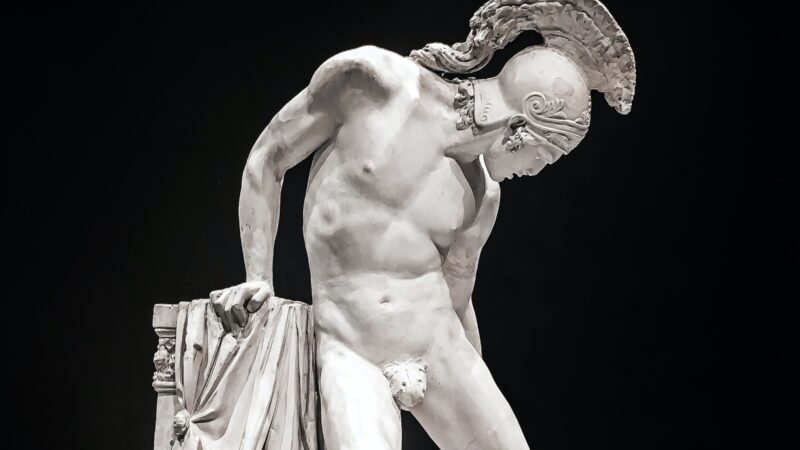Barbie or Oppenheimer? Two words you would have never considered putting together in a sentence. For the biggest summer blockbuster showdown in decades, the memes write themselves.
In recent months (and years!), we’ve seen flop after flop, such as the new Indiana Jones and Flash films, with endless CGI superheroes and the merciless rehashing of recognised brands. The inability for film studies to recognise and attempt anything new has only led to the continued damage of established and respected franchises.
This in part is due a decline in film studios being willing to take risks over new pieces of intellectual property (something the Studio A24 has excelled in), and a retreat into a ‘culturally bureaucratic’ system that neither rewards art nor generates anything vaguely new, preferring to reward conscientious proceduralism.
Given this, there has been widespread speculation that films like Oppenheimer will ‘save’ cinema, with Christopher Nolan’s biographical adventure, based on the book ‘American Prometheus’ (would highly recommend), being highly awaited and regarded.
Although, I suspect cinema is too far gone from saving in its current format. I do believe that Oppenheimer will have long term cultural effects, which should be recognised and welcomed by everyone.
In the past, there have been many films that, when made and consumed, have directly changed how we view topics and issues. Jaws gave generations of people a newfound fear of sharks, while the Shawshank Redemption provided many with the Platonic form of hope and salvation. I hope that Oppenheimer can and will become a film like this, because of what Robert Oppenheimer’s life (and by extension the Manhattan Project itself) represented.
As such, two things should come out of this film and re-enter the cultural sphere, filtering back down into our collective fears and dreams. Firstly, is it that of existential fear from nuclear war (very pressing considering the Russo-Ukrainian War) and what this means for us as species.
Secondly, is that of Blue-Sky Research (BSR) and the power of problem solving. Although the Manhattan project was not a ‘true’ example of BSR, it helped set the benchmark for science going forward.
Both factors should return to our collective consciousness, in our professional and private lives; they can only benefit us going forward.
I would encourage everyone to go out tonight and look at the night sky and say to yourself while looking at the stars: “this goes on for forever”. In the same breath, look to the horizon and think to yourself: “This can end at any moment. We have the power to do all of this”.
Before watching Oppenheimer, I would highly encourage you to watch the ‘Charlie Dean Archives’ and the footage of atomic bombs from 1959. Not only is the footage astounding, multiple generations have lived in fear of the invention; the idea and the consequences of the bomb have disturbed humans as long as it has existed.
Films like Threads in Britain played a similar role, which entered the unconscious, and films like Barefoot Gen for Japan (this film is quite notorious and controversial, but a must watch) did the same, presenting the real-world effects of nuclear war through the eyes of young children and the fear it invokes.
In recent years, we have seemingly lost this fear. Indeed, we continue to overlook the fact this could all be over so quickly. We have forgotten or chosen to ignore the simple fact that we are closer than ever before to the end of the world.
The pro-war lobby within the West have continually played fast and loose with this fact, to the point we find ourselves playing Russian roulette with an ever-decreasing number of chambers in our guns.
In the past, we have narrowly avoided nuclear conflict several times, and it has been mostly a question of luck as to whether we avoid the apocalypse. The downside of all this is that any usage of the word ‘nuclear’ is now filled with images of death and destruction, which is a shame because nuclear energy could be our salvation in so many ways.
Additionally, we need to remember what fear is as a civilisation; fear in its most existential form. We have become too indebted to the belief that civilisation is permanent. We assume that this world and our society will always be here, when the reality is that all of it could be wiped out within a generation.
As dark as this sounds, we need bad things to happen, so that we can understand and appreciate the good that we do have, and so that good things might occur in the future. Car crashes need to happen, so we can learn to appreciate why we have seatbelts. We need people to remember why we fear things to ensure we do everything in our power to avoid such things from ever happening again.
Oppenheimer knew and understood this. Contrary to the memes, he knew what he had created and it haunted him till the end of his days. Oppenheimer mirrors Alfred Nobel and his invention of dynamite, albeit burdened with a far greater sense of dread.
I hope that with the release of Oppenheimer, we can truly begin to go back to understanding what nuclear weapons (and nuclear war) mean for us as a species. The fear that everything that has ever been built and conceived could be annihilated in one act.
We have become the gods of old; we can cause the earth to quake and great floods to occur and we must accept the responsibility that comes with this power now. We need to fear this power once more, especially our pathetic excuse for leadership.
In addition to fear, Oppenheimer will (hopefully) reintroduce BSR into our cultural zeitgeist – the noble quest of discovery and research. BSR can be defined as research without a clearly defined goal or immediately apparent real-world applications.
As I mentioned earlier, whilst the Manhattan project was not a pure example of BSR, it gave scientists more freedom to pursue long-term “high risk, high reward” research, leading to a very significant breakthrough.
We need to understand the power of BSR. Moving forward, we must utilise its benefits to craft solutions to our major problems.
I would encourage everyone to read two pieces by Vannevar Bush. One is ‘Science the Endless Frontier’, a government report, and ‘As we may think’, an essay.
In both pieces, he makes a good argument for re-examining how we understand scientific development and research and calls for governmental support in such research. Ultimately, Bush’s work led to the creation of the National Science Foundation.
For research and development, government support played a vital role in managing to successfully create nuclear weapons before either the Germans or Japanese and their respective programs.
I believe it was Eric Weinstein who stated that the Manhattan project was not really a physics but rather an engineering achievement. Without taking away from the work of the theorists who worked on the project. I would argue that Weinstein is largely correct. However, I argue that it was a governmental (or ‘human’ achievement), alongside the phenomenal work of various government-supported experimentalists.
The success of the Manhattan Project was built on several core conditions. Firstly, there was a major drive by a small group of highly intelligent and functional people that launched the project (a start-up mentality). Secondly, full government support, to achieve a particular goal. Thirdly, the near-unlimited resources afforded to the project by the government. Fourthly, complete concentration of the best minds onto a singular project.
These conditions mirror a lot of the tenets of BSR: placing great emphasis on government support, unlimited resources and manpower and complete concentration on achieving a specific target. Under these conditions, we can see what great science looks like and how we can possibly go back to achieving it.
Christopher Nolan has slightly over three hours to see if he can continue to make his mark on cinema and leave more than a respectable filmography in its wake. If he does, let’s hope it redirects our culture away from merely good science, and back towards the pursuit of great civilisational achievements – something always involved, as a man with a blog once said: “weirdos and misfits with odd skills”.



